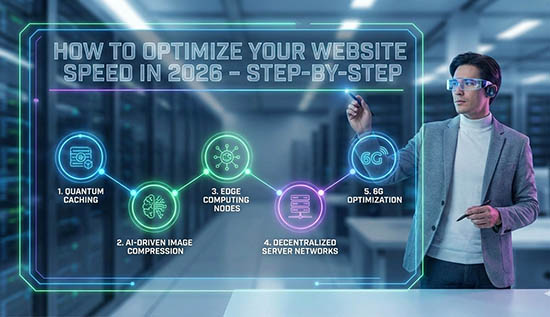Director of Technical Operations: Responsibilities & Challenges

Insightful overview of the Director of Technical Operations position with details on responsibilities, salary, qualifications, skills, and common workplace hurdles.
The Director of Technical Operations plays an important leadership role in firms that rely largely on technology, infrastructure and effective operational systems. This role bridges the gap between technical competence and strategic business management, ensuring that all systems, processes, and teams run smoothly. In this article, we will look at the director of technical operations job description, the director of technical operations roles and responsibilities, necessary skills, compensation expectations, credentials, career options and obstacles in the role.
Understanding the Role
A director of technical operations overseas technical teams, manages infrastructure, ensures seamless IT operations, and implements technical plans that correspond with business objectives. This position is popular in areas such as information technology, telecommunications, manufacturing, and major service businesses.
When studying a director of technical operations job description you'll frequently encounter duties such as controlling system performance, collaborating with other departments, ensuring regulatory compliance and leading technical projects from start to finish.
Director of Technical Operations Roles and Responsibilities
The director of technical operations roles and responsibilities, vary according to the organization's size, sector and technological complexity. Nonetheless frequent responsibilities include:
- Operational oversight: monitoring day to day technical activity, guaranteeing system availability, supervising preventive maintenance.
- Team leadership: leading and coaching technical teams, establishing performance standards, promoting professional development.
- Strategic planning: aligning operational tactics with long-term organizational goals.
- Vendor and Stakeholder Management: working with suppliers, contractors and senior management to maintain smooth operations.
- Compliance and Risk Management: ensuring that activities follow industry laws and that any risks are proactively managed.
A responsibilities of a director of technical operations in IT include monitoring network security, coordinating software deployments, assuring disaster recovery preparation, and optimizing cloud infrastructure.
Required Skills for Success
To flourish in this capacity, professionals must possess a varied range of skills. The director of technical operations skills set often includes:
- Technical expertise: extensive understanding of systems, relevant to the organization's field.
- Leadership and Communication: The capacity to lead teams, explain technical concepts to non-technical stakeholders.
- Project management: planning, executing, and completing projects on schedule and within budget.
- Problem-solving: quickly identifying and resolving technological challenges.
- Analytical thinking: using data to make informed operational decisions.
Adaptability and strategic thinking are two of the best skills needed, for a director of technical operations. Technology evolves quickly, therefore this position demands someone who can foresee changes and adapt systems accordingly.
Qualifications and Education
A bachelor's degree in engineering, computer science, information technology, a similar discipline is normally required for the position of director of technical operations qualifications. Many firms prefer people with a master's degree in business administration (MBA) or management which combines technical expertise with business acumen.
Qualifications such as PMP (Project Management Professional), ITIL (Information Technology Infrastructure Library) or technology-specific qualifications can further boost credibility and job opportunities.
Salary Expectations
The remuneration for the director of technical operations salary greatly depending on the industry, geographic area and size of the firm. Salaries in the United States, typically vary from $120,000 and $180,000 per year with some senior posts paying more than $200,000. Other frequent rewards include performance bonuses, stock options, professional development budgets.
Career Path
The director of technical operations career path often begins with a solid technical background. Many individuals begin as engineers, systems administrators or project managers before progressing to senior operations positions. Progression might look like this:
- Technical specialist or engineer
- Technical Team Leader or Supervisor
- Operations Manager or Technical Manager
- Director, Technical Operations
- Vice President or Chief Operations Officer
The journey from technical expert to director frequently necessitates the development of leadership, strategic thinking and financial management capabilities.
Director of Operations vs Director of Technical Operations
Although they may sound similar, there are significant variations between a director of operations vs director of technical operations.
- Director of Operations - Manages the organization's overall operations, including logistics, human resources, and finance.
- Director of Technical Operations - largely responsible for technical systems, infrastructure, and team operational efficiency.
In smaller firms, these functions may overlap, but in larger companies, they are distinct positions with specialized responsibilities.
Responsibilities of a Director of Technical Operations in IT
The responsibilities of a director of technical operations in IT are especially important in firms, that rely on technology. This includes:
- System Reliability: ensuring mission-critical applications are always operational.
- Cybersecurity: the process of protecting systems from potential dangers.
- Disaster recovery: implementing and evaluating backup and recovery strategies.
- Innovation: the assessment, and deployment of new technology, to improve operations.
Challenges Faced by Directors of Technical Operations
This position such as any other leadership function is fraught, with challenges. Challenges faced by directors of technical operations include:
- Rapid Technological Changes: Ensuring system stability while, keeping pace with, advancements.
- Budget constraints: the necessity of high-quality systems while maintaining cost efficacy.
- Personnel management: the recruitment, training, and retention of the most talented technical personnel.
- Cybersecurity Threats: Staying ahead of increasingly complex hackers.
- Cross-Departmental Coordination: ensuring that technical operations are in line with the needs of marketing, sales and other departments.
These obstacles necessitate resilience, ingenuity, sound decision-making abilities.
The Importance of Soft Skills
While technical knowledge is essential, soft skills play an important part in success. Emotional intelligence, negotiation skills, and conflict resolution, are among the best skills needed for a director of technical operations. Directors must traverse a wide range of personalities, deal with high-pressure circumstances, maintain team morale.
Future Outlook
The position of director of technical operations is evolving. As automation, AI and cloud technologies become increasingly common, directors must devise methods for incorporating these developments while maintaining operational stability. The ability to innovate while preserving critical services will distinguish the most successful leaders in this industry.
Conclusion
The director of technical operations is a strategic and operational executive who ensures that technological systems function properly, efficiently and securely. They are critical to the success of any organization because they combine extensive technical knowledge with great leadership qualities. Understanding the director of technical operations job description, learning the director of technical operations skills, and preparing for the challenges faced by directors of technical operations will help ambitious individuals launch a successful and rewarding career.
More Articles
 20 Dec 2025
20 Dec 2025
How to Optimize Your Website Speed in 2026 – Step-by-Step
Smart strategies for how to optimize your website speed in 2026 using modern tools, performance techniques and SEO-focused improvements.
 19 Dec 2025
19 Dec 2025
Must-Have Software for Developers 2026 – Top Tools & Apps
Must-have software for developers 2026 covering coding tools, productivity apps, and essential platforms used by front-end, full-stack, and mobile developers.
 18 Dec 2025
18 Dec 2025
VPN vs Proxy for Business: Which Is Safer & More Secure
VPN vs Proxy for business security explained with real use cases, comparisons and guidance to choose safer remote access solutions.
 17 Dec 2025
17 Dec 2025
Key Lessons & Best Practices from Digital Transformation
Key lessons from successful digital transformation projects, including best practices, common challenges, and effective implementation strategies.